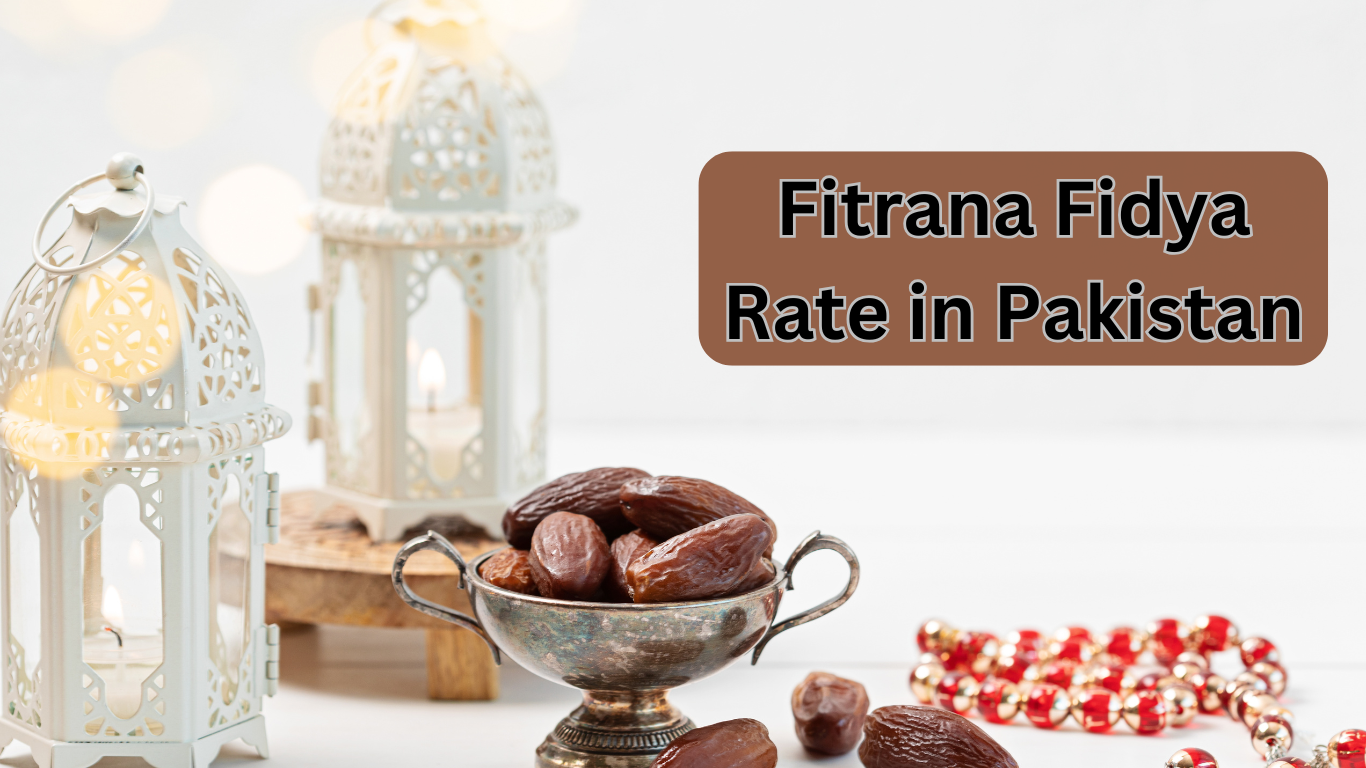Ramadan is more than a month of fasting; it is a time for self-reflection, compassion, and providing support to those in need. One of the core practices that embody the spirit of giving during this holy month is Fitrana, also known as Sadqa-e-Fitr. For Ramadan 2025, details regarding the Fitrana amount and related obligations for Muslims in Pakistan have been officially announced. Here’s what you need to know to ensure your contributions are both timely and accurate.
What is Fitrana and Why is it Important?
Fitrana, or Sadqa-e-Fitr, is an obligatory charitable contribution for Muslims, paid before the Eid-ul-Fitr prayer. Its primary purpose is twofold:
- To purify the fasting of a person by cleansing minor mistakes made during Ramadan.
- To enable the underprivileged to participate in the joyous celebrations of Eid.
Fitrana is paid on behalf of every Muslim, regardless of age, including children and dependents. Paying it promptly ensures that those in need receive the necessary aid before Eid festivities begin.
Fitrana Amounts for Ramadan 2025 in Pakistan
The Council of Islamic Ideology, led by Dr. Raghib Hussain Naeemi, has announced the exact rates for the Fitrana amount for 2025. This rate is determined based on the prevailing market prices of staple food items, such as wheat, barley, dates, and raisins. Here is the breakdown of the Fitrana amounts per head:
- Wheat (Gandum): Rs. 360 per person
- Barley (Jau): Rs. 900 per person
- Dates (Khajoor): Rs. 2,500 per person
- Raisins (Kishmish): Rs. 5,700 per person
- Ajwa Dates (Manaqah): Rs. 14,700 per person
The choice of the amount depends on your financial capacity, and it is preferred that those who can afford higher amounts pay accordingly. For families, the total is calculated by multiplying the per-head amount with the number of family members.
Fitrana for Subsidized Flour Users
For those using government-subsidized flour, the Fitrana amount can be lowered to Rs. 160 per head. This adjustment ensures accessibility for individuals at all income levels.
Fidya (Compensation for Missed Fasts) in Ramadan 2025
Fidya is a payment made by individuals who are unable to fast due to valid reasons, such as illness or old age, and who cannot make up for the missed fasts later. The Fidya rate for 2025 is calculated on similar parameters:
- Wheat (Gandum): Rs. 6,600 for 30 fasts
- Barley (Jau): Rs. 13,500 for 30 fasts
- Dates (Khajoor): Rs. 49,500 for 30 fasts
- Raisins (Kishmish): Rs. 75,000 for 30 fasts
- Ajwa Dates (Manaqah): Rs. 150,000 for 30 fasts
Individuals paying Fidya should do so with the intention of covering the cost of daily sustenance for those in need.
Kaffara (Compensation for Breaking a Fast Without Valid Reason)
If someone deliberately misses or breaks a fast without a valid reason, they are required to either:
- Fast for 60 consecutive days, or
- Provide two meals to 60 needy individuals.
For Ramadan 2025, the Kaffara rates based on current food prices are as follows:
- Wheat: Rs. 240
- Barley: Rs. 3,600
- Dates: Rs. 10,000
- Raisins: Rs. 22,800
It is worth noting that only one Kaffara payment is required per Ramadan, regardless of the number of fasts missed.
How to Calculate Fitrana and Distribute it Properly
The calculation of Fitrana is straightforward. Multiply the per-head amount by the number of family members in your household. For instance, a family of four paying Rs. 360 per head for wheat would contribute a total of Rs. 1,440.
Distribution Guidelines:
- The contribution should be distributed before the Eid prayer, ensuring that it reaches the needy on time.
- Priority should be given to relatives, neighbors, and those within your community.
- Use authentic channels or credible organizations if direct distribution isn’t feasible.
This timely act of charity not only uplifts those in need but also enriches the giver with blessings and purification of one’s fasts.
Why Paying Fitrana Matters
Fitrana exemplifies the principles of compassion, equality, and generosity—the very spirit of Ramadan. By ensuring those less fortunate can partake in the joys of Eid, this act fosters community harmony and helps bridge social disparities.
Dr. Raghib Hussain Naeemi emphasized the religious obligation of paying Fitrana, stating, “Zakat Fitr is mandatory for every free Muslim, male or female, to provide dignity and joy to the underprivileged during Eid.” He also advised those well-off financially to pay at higher rates, proportionate to their means.
Practical Tips for Fulfilling Your Fitrana Obligations in 2025
- Stay Updated: Follow announcements from scholars and councils to remain aware of the declared rates.
- Calculate Early: Plan ahead to ensure you allocate the correct amount without delays.
- Use Trusted Channels: Avoid scams by donating through reputable organizations or verified community leaders.
Plan Ahead for a Blessed Eid
Amid the hustle of Ramadan, it is easy to overlook the significance of Fitrana. However, early planning and distribution are key to fulfilling this obligation properly. Whether you choose to pay Rs. 360 for wheat or Rs. 14,700 for Ajwa dates, what truly matters is the spirit in which you give.
By paying Fitrana and Fidya, you’ll not only purify your fasting but also contribute to a more inclusive and joyous Eid for your entire community.
Stay prepared, and take this opportunity to spread kindness and generosity this Ramadan.

